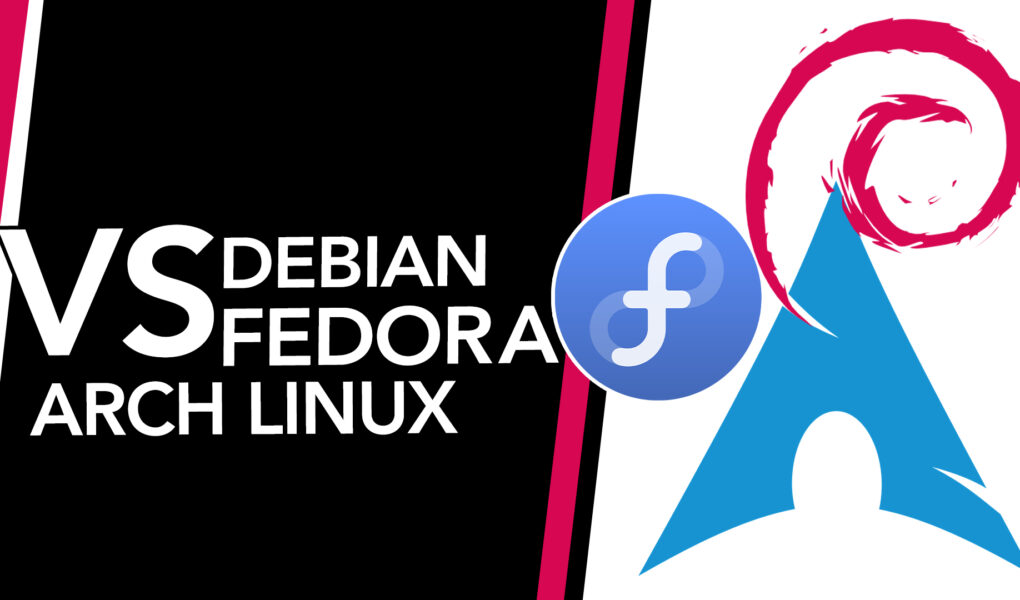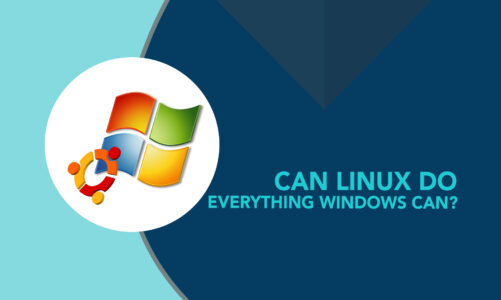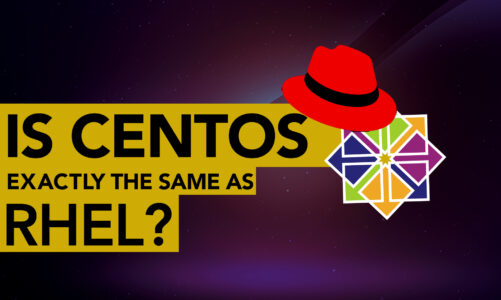Choosing the right Linux distribution can be quite challenging, especially for new users or those who want to switch from one distro to another. Among the vast array of Linux distributions, Fedora, Debian, and Arch Linux are three popular choices with unique features, benefits, and communities. But what are the differences between these three distros, and what makes them stand out? Let’s check it out.
What is Fedora?
Fedora is a community-driven Linux distribution sponsored by Red Hat, known for its cutting-edge features and serving as the upstream source for Red Hat Enterprise Linux (RHEL). It offers a streamlined installation process, excellent hardware support and strictly adheres to open-source software principles. Fedora’s focus on providing the latest software packages and frequent updates makes it an attractive choice for users looking to stay up-to-date with the newest advancements in technology.
Quick Features
- Cutting-edge software packages
- Frequent updates
- Excellent hardware support
- Streamlined installation process
- Strictly open-source software
- Strong corporate backing from Red Hat
What is Debian?
Debian, being among the oldest and most reliable Linux distributions, places a high emphasis on stability, security, and the tenets of free software. It serves as the foundational platform for numerous well-known distros, such as Ubuntu. It is renowned for its extensive software repositories, high commitment to free software, and large, active community. Debian’s stability and reliability make it a great choice for users who require a solid foundation for their Linux environment.
Quick Features
- Stable and reliable
- Extensive software repositories
- High commitment to free software
- Strong security focus
- Large, active community
- Basis for many popular Linux distributions, including Ubuntu
What is Arch Linux?
Arch Linux is a streamlined, constantly updated Linux distribution that prioritizes straightforwardness and personalization. Arch Linux gives users full control over their system, offering a minimalist and highly customizable base system. Its extensive user repositories (AUR) and comprehensive documentation make it an ideal choice for experienced users who prefer a hands-on approach to configuring their Linux environment. Arch Linux’s focus on simplicity and user control appeals to those who enjoy building their system from the ground up.
Quick Features
- Rolling release model
- Minimalist and lightweight
- Highly customizable
- Extensive user repositories (AUR)
- Comprehensive documentation
Fedora vs Debian: Comparing Key Differences
1: Software Management
Fedora uses the DNF package manager, while Debian uses APT. Both are powerful and user-friendly, but DNF offers a more modern experience with improved dependency resolution and faster operations.
2: Release Cycle
Fedora has a faster release cycle, providing newer software packages sooner. Debian, on the other hand, prioritizes stability with its longer release cycle and well-tested packages.
3: Stability and Security
Debian is known for its rock-solid stability, while Fedora’s focus on cutting-edge software may result in occasional instability. However, Fedora has an excellent security track record thanks to its close relationship with Red Hat.
4: Community Support
Both Fedora and Debian have large, active communities. Fedora has strong corporate backing from Red Hat, while Debian’s community-driven development model ensures a high level of user involvement.
Fedora vs Arch Linux: Comparing Key Differences
1: Package Availability
While Fedora has a vast software repository, Arch Linux offers even more packages through its Arch User Repository (AUR), which contains user-contributed packages not officially supported by Arch.
2: System Configuration
Arch Linux provides a highly customizable, minimal base system, allowing users to build their desired environment from scratch. Fedora, in comparison, comes with a more complete out-of-the-box experience and a predefined set of tools and applications.
3: Pre-installed Software
Fedora comes with a comprehensive set of pre-installed software and tools, providing a complete out-of-the-box experience for users. Arch Linux, in contrast, offers a minimal base system with few pre-installed packages, requiring users to install and configure their preferred applications manually.
4: Documentation and Community Support
Fedora benefits from Red Hat’s backing, providing extensive documentation and resources. Moreover, Fedora boasts a vibrant and extensive community, providing support to its users. Arch Linux is known for its extensive and comprehensive wiki, which serves as an invaluable resource for users. The Arch Linux community is also very active, but it tends to cater more to advanced users who prefer a do-it-yourself approach.
Debian vs Arch Linux: Comparing Key Differences
1: Installation Process
Debian provides a guided installation process, while Arch Linux requires manual intervention and a deeper understanding of Linux systems. This makes Debian a more accessible choice for beginners or those looking for a hassle-free setup.
2: Customizability
Arch Linux is famous for its customizability, allowing users to tailor their system to their preferences. Debian also offers customization options but not to the same extent as Arch.
3: Documentation and Support
Both Debian and Arch Linux have extensive documentation and active user communities. However, Arch Linux is known for its comprehensive wiki, which serves as an invaluable resource for troubleshooting and configuration.
4: Package Management
Debian uses the APT package management system, which is well-established and offers a high level of stability and ease of use. Arch Linux uses the Pacman package manager, which is also user-friendly but has a stronger emphasis on simplicity and speed. Additionally, Arch Linux provides access to the Arch User Repository (AUR), which greatly expands the available software packages, though these packages are maintained by the community and may not be as thoroughly tested as the official repositories.
Which One to Choose?
Fedora and Debian are more beginner-friendly options, with Fedora providing a cutting-edge experience and Debian offering stability and reliability. New Linux users may find these distros easier to work with compared to Arch Linux.
For users looking for a highly customizable and minimalist system, Arch Linux is the ideal choice. Its hands-on approach and rolling release model make it appealing to experienced users who want to build their system from the ground up.
Conclusion
Ultimately, your decision to opt for Fedora, Debian, or Arch Linux will based on your specific requirements and likings. Fedora offers a cutting-edge experience with Red Hat’s backing, Debian provides a stable and secure foundation, and Arch Linux delivers unmatched customizability. By understanding the unique features and drawbacks of each distro, you can make an informed decision that best aligns with your requirements.




